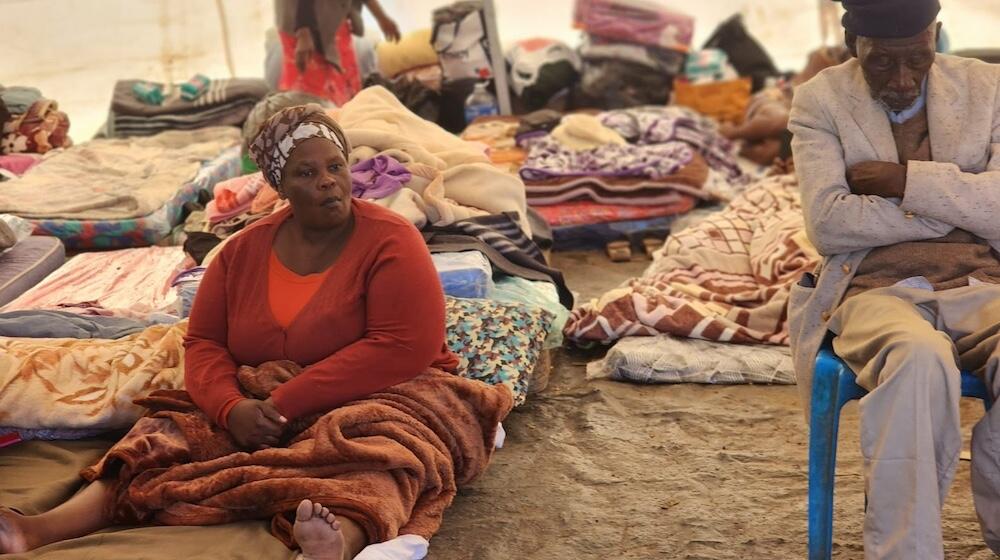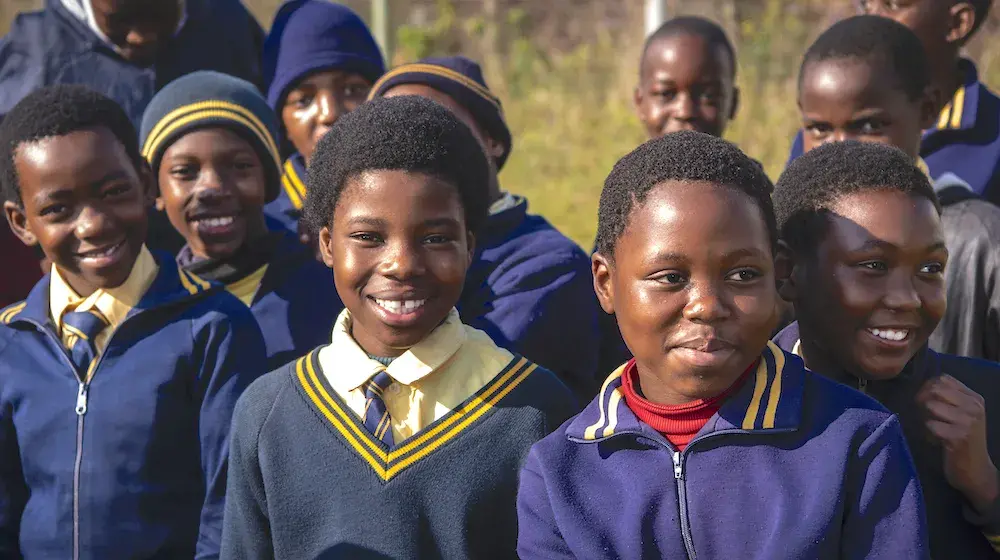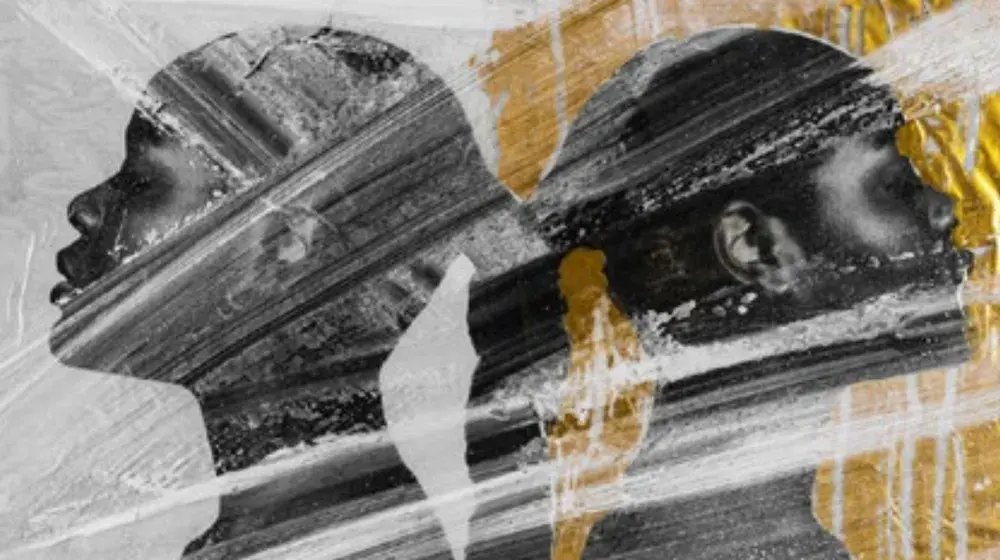Blog by Linda Naidoo, Programme Analyst, South Africa Country Office
DURBAN/TONGAAT, South Africa – It’s June 3rd and social media is abuzz with videos of hail the size of tennis balls and a sky that resembles something like smoke, 40 kilometres north of Durban. Reports come in that a tornado has hit the town of Tongaat and the surrounding area of Magwaveni. Thousands of homes are affected. People have died. The government reaches out to UNFPA
Within 24 hours, the head of the government’s Department of Social Development reaches out to UNFPA in the province to ask for help. Since two previous crises in KwaZulu-Natal to which we responded quickly, UNFPA has become a go-to partner. When the province was hit by unrest in July 2021 and flooding in April 2022, the UNFPA team was one of the first on the ground, offering sanitary dignity kits for women and young girls, hygiene kits for men, and mattresses and blankets for the people who were forced out of their homes.
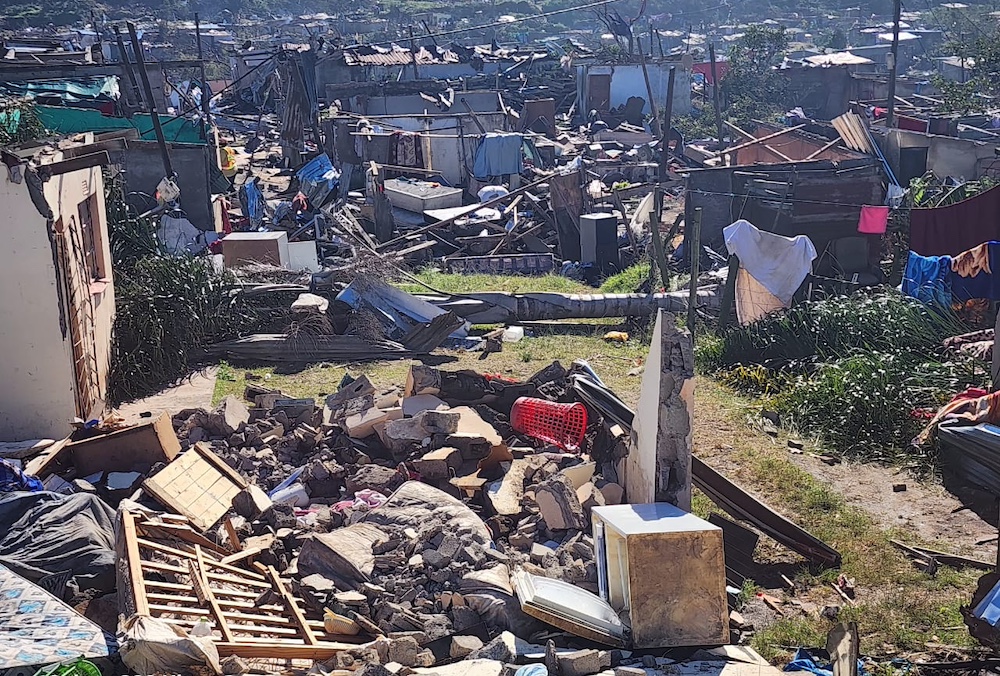
I am pleased that our efforts have created a strong and lasting impression.
Yet, crises bring unpredictability. As much as we want to respond with speed to the tornado affected, debris on the roads makes it impossible to reach the Magawaveni area. We are forced to wait another day for the roads to be cleared.
By the time Assistant Representative Thulani Mbatha, Operations Clerk Sizwe Dlamini and I get the go-ahead, figures capturing the extent of the damage and the fatalities are trickling through. Seven people have died and more than 3000 households are affected.
I have seen video footage of the tornado’s impact but nothing prepares me for the pain and devastation on the ground.
I have seen video footage of the tornado’s impact but nothing prepares me for the pain and devastation on the ground. The violent rotating column of air, a supercell storm, has ripped to shreds the majority of homes in its path. Roofs are blown off. Clothes and bedding lie strewn across the ground. Informal houses are reduced to piles of corrugated iron and rubble.
Everywhere I look, people are trying to salvage what they can from the wreckage. Some are attempting to repair their homes with makeshift materials. As we walk with care through live electrical wiring that has fallen and lies exposed, presenting an acute risk to the community, I feel a mixture of emotion and questions. Could this community have been better prepared for such a disaster? Did they receive any warning before the tornado hit?
They urgently need help, and we have much to do.
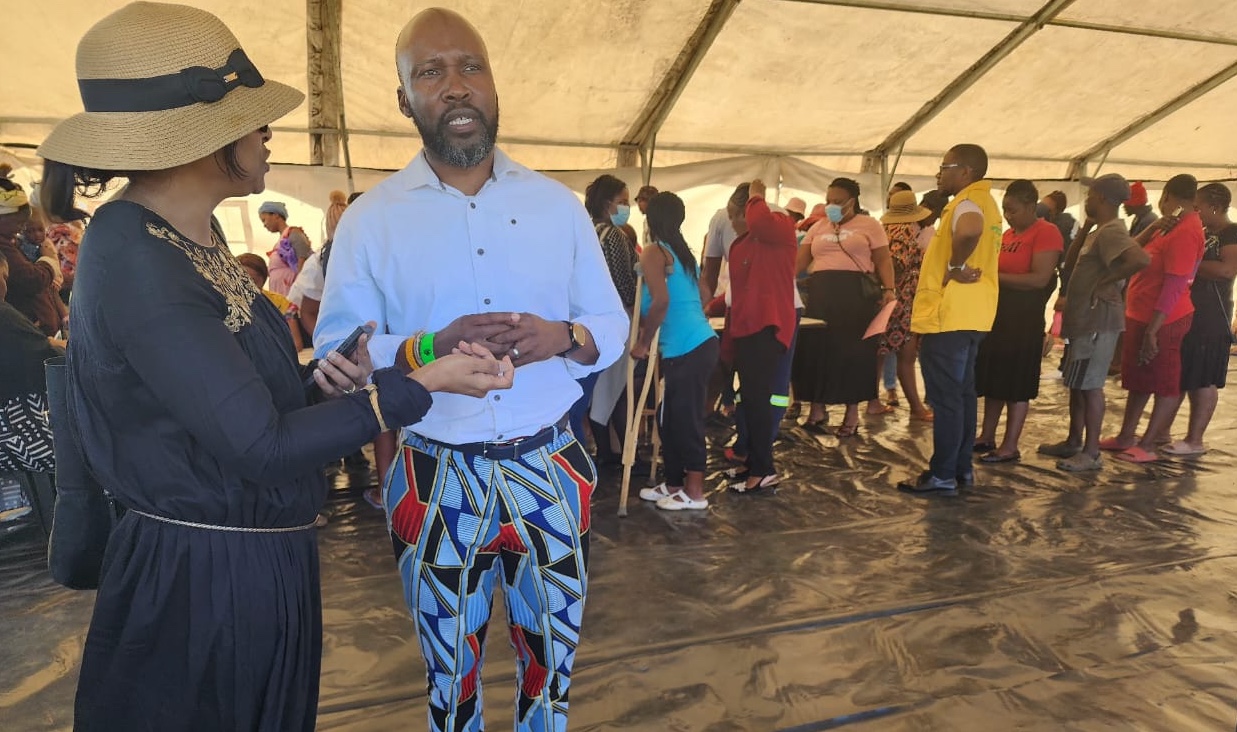
At a temporary shelter set up on Magwaveni sports field, people wait to be profiled for assistance. Non-governmental organizations and private individuals have brought food parcels and items like blankets and mattresses for the tornado survivors. Thulani and I move among them, enquiring about their need for medical assistance and offering words of comfort. In particular, we are looking for pregnant women, to offer to take them to one of the onsite mobile clinics, or arrange transfers to a nearby hospital if necessary.
Three mobile clinics have been dispatched to the site. Their staff are already providing basic health services and assisting with chronic medication. People with more serious injuries are being transferred to the Tongaat Community Health Centre. Affected people are being accommodated in two nearby schools and a community hall, but some of them refuse to stay. Instead, they choose to sleep outside their destroyed homes in the hope of recovering some of their belongings.
I am amazed to see children playing happily in the heaps of sand left in the tornado’s wake, seemingly oblivious to the disaster about them.
As I view the aftermath of the storm, I am amazed to see children playing happily in the heaps of sand left in the tornado’s wake, seemingly oblivious to the disaster about them, in complete contrast to the adults accompanying them.
A lump grows in my throat as I listen to people talking about what happened to them, especially youngsters and the elderly. A young man tells me of his concern that a ‘spirit’ has come to destroy their lives, while a pregnant woman expresses her despair after losing everything she has except the clothes she is wearing. I offer to take her to a mobile clinic but she declines and instead, I lead her to a social worker as it is apparent that she is in need of psychosocial support.
Already, I notice evidence of the community's resilience - people cleaning up living spaces or working in groups to replace blown-off roofs with tin roofing. It’s hard to imagine that amid such tremendous loss, I hear casual banter, and laughter even.
We leave the temporary shelter, praying that it will not rain. Exposed wires remain a risk, and people sleeping outside their collapsed homes to protect any goods they can still salvage do not deserve to get drenched. Another shower will add to the already extensive damage suffered. Nor are the tents set up as temporary shelters likely to be able to accommodate any more people. They are filled to the brim.
The devastation caused by the 2022 floods is still sharp in my memory and I can’t bear the thought of a repeat of this – not for these people, not right now. I turn my focus to what can be done to help the community rebuild. They need hope for the future, and we are well placed to deliver this.
While the government, NGOs and the private sector are catering to people’s immediate basic needs, UNFPA approaches from another angle. We’re looking at how to strengthen the coordination of disaster management teams, a gap that our key partners in the province are also recognizing. This will include data collection and management for effective and timely responses.
The next time a disaster strikes, we will be better prepared to meet people’s needs, together with our partners. Knowing that gives me a sense of peace. We can’t prevent natural or climate-related disasters, but we can do our best to respond in time with the appropriate care - especially for pregnant women and young people.
Note:
UNFPA was invited to join the South African government leadership and eThekwini Municipality team to conduct a rapid assessment to determine the magnitude of the humanitarian crisis caused by the tornado. To date, UNFPA has provided support in developing appropriate data collection tools and proactive response plans.
Other organizations that were on site providing services included the Red Cross, Al-Imdaad, Gift and Givers and Human Aid SA.
With estimated wind speeds between 225 and 265 kmph, the tornado that caused severe damage to Tongaat, Magwaveni and further down the coastline on June 3 was rated EF3 on the Enhanced Fujita scale. At this level, damage includes the uprooting of all trees in its path, roofs and walls blown away, destruction of the upper floors of two-story buildings, and large vehicles blown from their original position. While South Africa typically experiences weak tornadoes with an EF rating of 0 to 2, approximately every decade an EF3 or EF4-level tornado occurs. (Source: Knysna-Plett Herald, 12 June 2024.)

